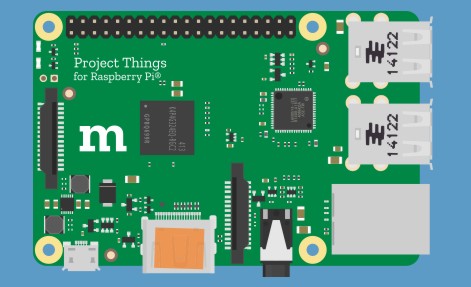| Mozilla WebThings Beyond Experimental |
| Written by Harry Fairhead | |||
| Thursday, 25 April 2019 | |||
|
WebThings just graduated from being in an experimental phase to something more serious, but this sort of home IoT is a tough nut to crack. Can we trust Mozilla to be there after we invest time and effort? Open source is great, but it goes a little wrong when a big organization takes the helm. Projects that look promising can crash and burn the day that the big organization loses interest. A real open source project isn't dependent on organizational support but the enthusiasm of its programmers. For IoT continuity is everything. You don't want to spend a lot of money on hardware only to discover that it becomes useless when the cloud servers are switched off or when the plug is pulled on software support. Confidence is the problem that Mozilla has to solve. For one thing there is the important question of why Mozilla is involved in the IoT at all? Its recent adventure in taking Firefox to the mobile phone as an alternative OS to Android and iOS ended badly and that project had a lot more connection to its traditional activities than IoT software. When WebThings was first announced I was very skeptical, for all the reasons above and because the early software didn't support many devices. As anyone who as dabbled in the IoT knows, it is getting device X to work with hub or home controller Y that is one of the biggest problems. Since those early days things have improved. It is claimed that a wide range of Zigbee and Z-wave devices just work. The actual list of tested devices is still small by comparison to what you will encounter and I'm sure there are devices that need you to do some work to get them integrated with the system - some, due to lack of manufacturers' data, could be impossible. Now there does seem to be enough support to encourage me to think about giving WebThings a second try. The Things system has two components - the bigger is the Gateway which can run on a range of machines including a Raspberry Pi. You will also need a Zigbee and/or a Z-wave USB dongle if you plan to connect to such devices. If you don't want to use a Pi then you can use a range of other devices, including routers running OpenWrt. The Gateway can run standalone - which is good - but you can also opt to create a subdomain of mozilla-iot.org to allow you to connect using secure tunnelling over the web. Of course, if Mozilla gives up on IoT then this is the part of the package that will break. As an IoT hub, Things Gateway works reasonably well. You can add devices, control them manually and add rules to automate their behavior. It also supports alarms, and hence is suitable for a security system. You can even upload a floor plan and have a nice graphical user interface. My biggest worry is that my current setup has 50 plus devices of all sorts and I'm not convinced that this web-based UI is going to make it easy to handle a complex system. This is a problem that few of the commercial controllers have managed to solve but WebThings seems particularly cramped. The second part of the system is the Framework, which as programmers we should find almost as important/exciting as the Gateway. You can use this to build your own devices and add them. This works in Node, Python, Java, Rust and Arduino, so you can pick your language. There are already addins that let you work with GPIO lines, which means you can add sensors and try things out without spending a lot of time on custom code. The good things about WebThings is that it's open source, possibly a W3C standard in the future, and it doesn't depend on the cloud. The bad things are that there are lots of proprietary systems that make it difficult for WebThings to work with their sensors, there is no commercial use of WebThings at the moment and there is no long term promise of stability or development. To give you some idea how difficult this area is it is worth recalling that Google just downgraded its "Things" system. If you have spent time working with it then - so much wasted time. Mozilla is nowhere near as bad as Google for killing projects, but sometimes they have to - see Mozilla Gives Up On Firefox OS. Given the low cost of hardware needed to implement a gateway device, and how far the software has improved to reach version 0.8, trying it out looks a lot less risky than it did a few months ago.
More InformationRelated ArticlesMozilla's Things Gateway For Rapsberry Pi Why The Internet Of Things Has A Problem To be informed about new articles on I Programmer, sign up for our weekly newsletter, subscribe to the RSS feed and follow us on Twitter, Facebook or Linkedin.
Comments
or email your comment to: comments@i-programmer.info |
|||
| Last Updated ( Tuesday, 22 September 2020 ) |




